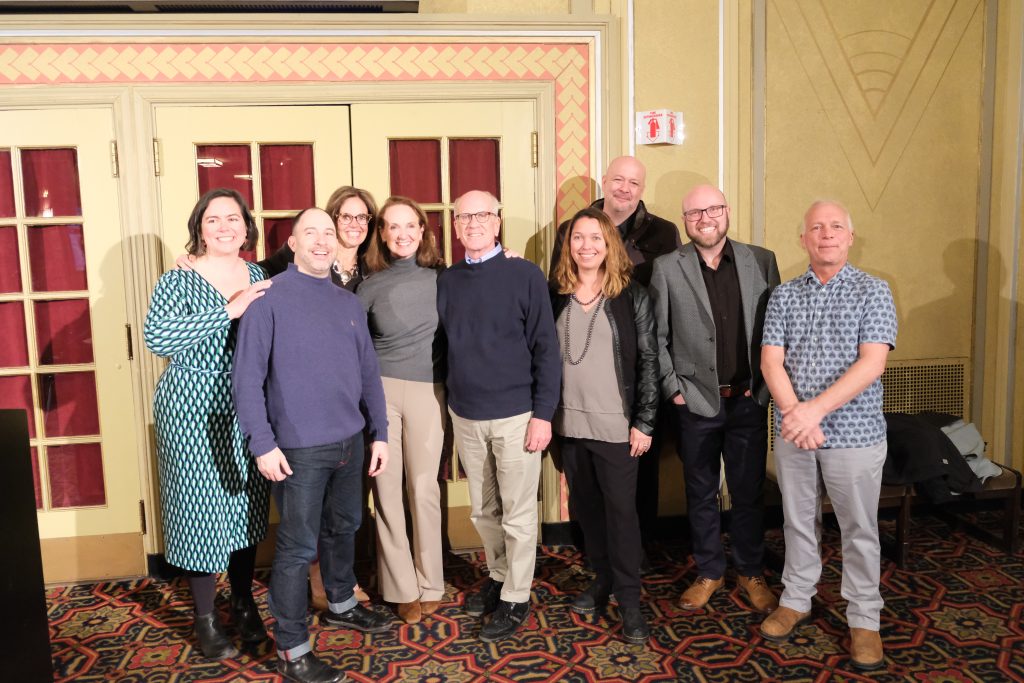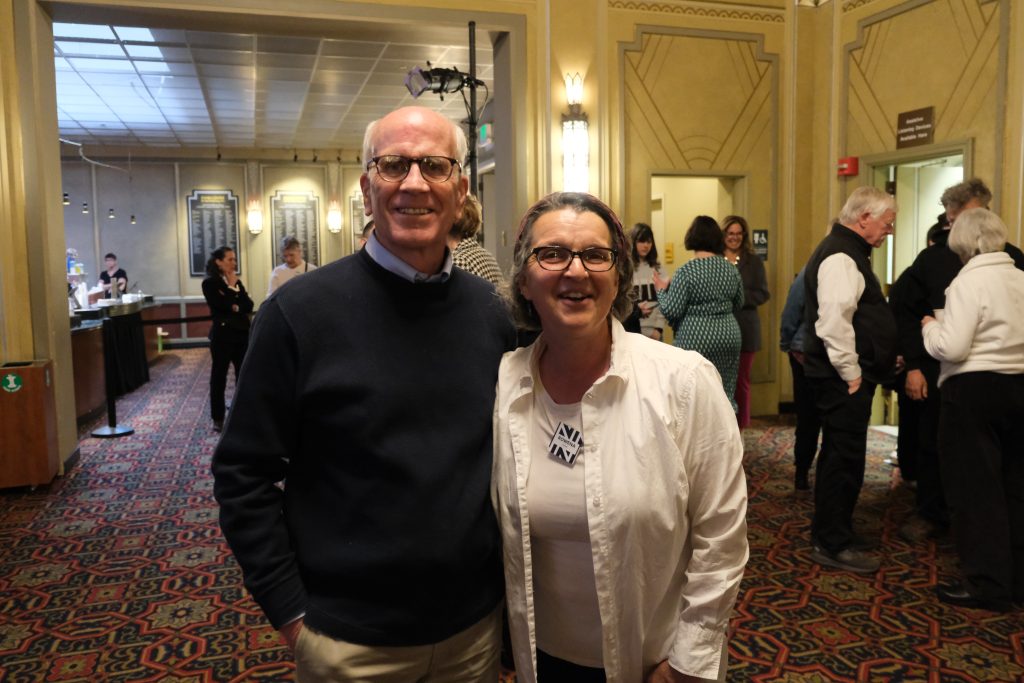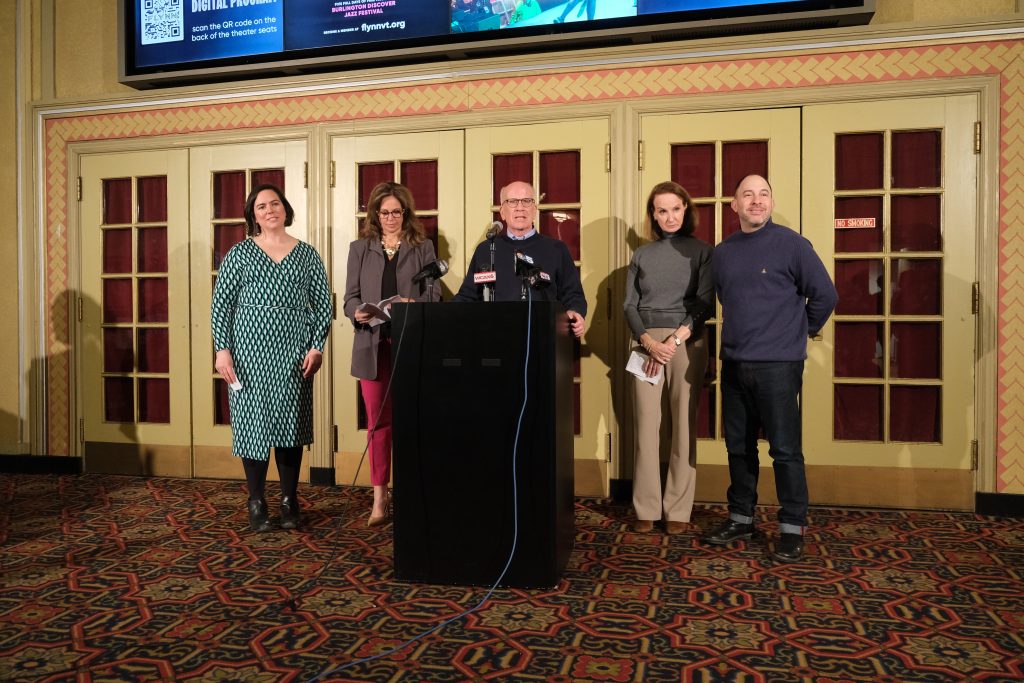
Nonprofit Theaters Take Center Stage as Welch Discusses the ‘STAGE Act’
Vermont Business Magazine US Senator Peter Welch (D-Vermont) has announced two new cosponsors of the Supporting Theater and the Arts to Galvanize the Economy (STAGE) Act: U.S. Senators Richard Blumenthal (D-Conn.) and Alex Padilla (D-Calif.). The lawmakers join Senators Welch, John Fetterman (D-Pa.) and Jack Reed (D-R.I.) in the Senate. Congresswoman Suzanne Bonamici (D-OR-01) is leading companion legislation in the House of Representatives.
Welch stressed the importance of the arts and his STAGE Act of 2024 bill at an event held Wednesday night at Burlington’s historic Flynn Performing Arts Center.
Professional nonprofit theaters, which enrich communities and bolster local economies in every state, have experienced a lagging recovery from the COVID-19 pandemic. Theaters have been forced to reduce staff and productions, and many have closed permanently. The STAGE Act will establish a new grant program to support the industry. The bicameral bill is cosponsored in the Senate by Senators John Fetterman (D-Pa.), Jack Reed (D-R.I.), Alex Padilla (D-Calif.) and Richard Blumenthal (D-Conn.) and in the House by Congresswoman Suzanne Bonamici (D-OR-01).
Senator Welch was joined at the Flynn Center by local arts, community and economic leaders, including Vermont Secretary of Commerce Lindsay Kurrle, Jay Wahl of the Flynn Center, Carol Dunne of Northern Stage, and Susan Evans McClure of the Vermont Arts Council.
“The arts and nonprofit theaters are vital, especially in rural states like Vermont. Our local nonprofit theaters give back in so many ways including creating and support jobs. The arts attract local audiences and tourists, who spend money at our local restaurants, bars, shops, and hotels. And of course, our theaters inspire a sense of community, and bring people together—they’re in the hearts of so many folks and deeply embedded in the soul of our country,” said Senator Welch. “But theaters are still recovering from the pandemic, and without a robust investment, more will close. We need the STAGE Act to ensure the show can go on for future generations of theatergoers and artists across Vermont and across America.”

The STAGE Act is endorsed by over 170 theaters from across the United States, as well as national theaters, arts, and economic organizations, including: the Professional Non-Profit Theater Coalition (PNTC); the Department for Professional Employees, AFL-CIO (DPE); the Stage Directors and Choreographers Society (SDC); the Theatre Communications Group (TCG); the League of Resident Theaters (LORT); the National Alliance for Musical Theatre (NAMT); the Theatre for Young Audiences/USA; and the Educational Theatre Association (EdTA).
In Vermont, the STAGE Act has been endorsed by the Paramount Theatre in Rutland; Catamount Arts in St. Johnsbury; the Town of Brattleboro; City of Rutland Mayor Mike Doenges, Weston Theater Company in Weston; Vermont Arts Council; Town Hall Theater in Middlebury; Lake Champlain Chamber of Commerce; Vermont Chamber of Commerce, and the New England Foundation for the Arts.
The nonprofit arts sector generated $151.7 billion in direct spending by organizations and attendees in 2022, and $29.1 billion in tax revenue. The nonprofit arts sector also supported 2.6 million jobs and provided $101 billion in personal income to workers in communities across America. In Vermont, the nonprofit arts and culture industry generated $158.5 million in direct spending by organizations and arts audiences.
Despite these economic contributions and the support of the public, the nonprofit arts—especially nonprofit theaters—are struggling to stay open after the pandemic. Audiences are down 20-50% from pre-2020 levels. Inflation and higher-than-average operating costs are hurting the bottom-line. Some theaters have mounted productions with limited runs or scaled-back seasons, and many throughout the country have closed.
Learn more about the STAGE Act.

“The nonprofit theater industry supports hundreds of thousands of skilled professionals and artists, right in our local communities. But the recovery from the pandemic has been very difficult for so many theaters across America—from Vermont to California to Connecticut. If we’re going to keep those marquees lit, there needs to be federal help,” said Senator Welch. “I’m glad Senators Blumenthal and Padilla are joining us in support of the STAGE Act, and our fight to sustain this industry so crucial to our communities and local economies.”
“Our local theaters are the cultural jewels of Connecticut—bringing creativity and economic vitality to our communities,” said Senator Blumenthal. “Our culture, education, and artistic values are bound together by our stages, and we must sustain their continued recovery from the pandemic. I’m proud to join Senator Welch in leading the STAGE Act to preserve these cultural tools and economic drivers for generations to come.”
“Theater and performing arts cultivate California’s rich cultural and entertainment spaces and generate significant revenue as a key part of our state’s leading creative economy,” said Senator Padilla. “As these sectors continue to recover from the pandemic, I’m proud to partner with Senator Welch to support nonprofit theaters and stimulate our communities and local economies for years to come.”
Professional nonprofit theaters, which enrich communities and bolster local economies in every state, have experienced a lagging recovery from the COVID-19 pandemic. Theaters have been forced to reduce staff and productions, and many have closed permanently. The STAGE Act will establish a new grant program, administered by the Department of Commerce’s Economic Development Administration, that would provide $1 billion annually to support the industry.
The grants would be used to pay rent and payroll, employ artists and support professional personnel, attract new audiences, invest in industry workforce development, study how to best sustain the long-term success of this industry, and– most importantly–ensure the show can go on.
The STAGE Act is supported by over 170 theaters from across the United States—including theaters in California and Connecticut—as well as national theaters, arts, and economic organizations, including: the Professional Non-Profit Theater Coalition (PNTC); the Department for Professional Employees, AFL-CIO (DPE); the Stage Directors and Choreographers Society (SDC); the Theatre Communications Group (TCG); the League of Resident Theaters (LORT); the National Alliance for Musical Theatre (NAMT); the Theatre for Young Audiences/USA; and the Educational Theatre Association (EdTA).
The nonprofit arts sector generated $151.7 billion in direct spending by organizations and attendees in 2022, and $29.1 billion in tax revenue. The nonprofit arts sector supported 2.6 million jobs and provided $101 billion in personal income to workers in communities across America. Despite these economic contributions and the support of the public, the nonprofit arts—especially nonprofit theaters—are struggling to stay open after the pandemic. Audiences are down 20-50% from pre-2020 levels. Inflation and higher-than-average operating costs are hurting the bottom-line. Some theaters have mounted productions with limited runs or scaled-back seasons, and many throughout the country have closed.
Read more on the STAGE Act here.
Source: WASHINGTON, D.C. – US Senator Peter Welch. 4.23.2024


